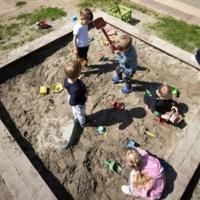Croatian Town Compensates Grandparents for Childcare Services


In a groundbreaking initiative addressing childcare shortages, the Croatian town of Samobor has introduced a unique program aimed at supporting working parents while also enhancing familial connections. Located near the country’s capital, Zagreb, Samobor’s “Grandmother-Grandfather Service” pays grandparents to provide childcare, thereby bridging the gap in public childcare availability.
The innovative program offers financial compensation of 360 euros (approximately 0) monthly per child, allowing participating grandparents to supplement their pensions. This dual benefit is particularly significant in a country where pensions are often low, granting older citizens an opportunity to contribute positively to their families while alleviating the financial burdens faced by working parents.
Mayor Petra Skrobot expressed optimism about the program’s multifaceted benefits, stating, “The benefits are multiple. Pensions are rather low, and for parents, it is sometimes difficult to find adequate care for children. We wanted to give the parents the possibility to choose the type of care for their children.” This initiative not only addresses the immediate need for childcare solutions but also aims to strengthen intergenerational bonds, reduce social isolation, and foster community ties, especially as Croatia’s population continues to age.
Childcare in Croatia has long posed challenges for parents. Although mothers may benefit from a year of maternity leave, state-funded childcare services are accessible only for children aged six months up to six years. This gap leaves many families struggling to find suitable care solutions during crucial early years of a child’s development. By utilizing trusted family members, the Samobor initiative endeavors to provide a safe and familiar environment for children, while empowering grandparents to remain active participants in their grandchildren’s lives.
As this pilot program unfolds, its potential implications could extend beyond the boundaries of Samobor. If successful, it may serve as a model for other municipalities grappling with similar childcare hurdles across Europe. The program has garnered media attention for its forward-thinking approach to addressing the intersection of demographic change, family welfare, and economic stability.
As communities worldwide strive to create flexible and sustainable childcare solutions, Samobor’s initiative could inspire further discussions and initiatives that prioritize family involvement in the upbringing of children, thus promoting a more cohesive society. This novel approach not only highlights the importance of considering various stakeholders in childcare policy but also reinforces the idea that community-based solutions can effectively tackle pressing social issues.




